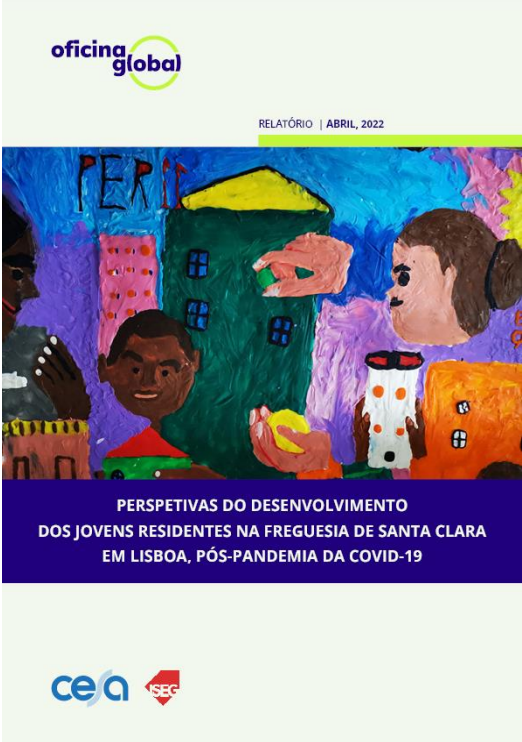Sociocultural Aspects of Development
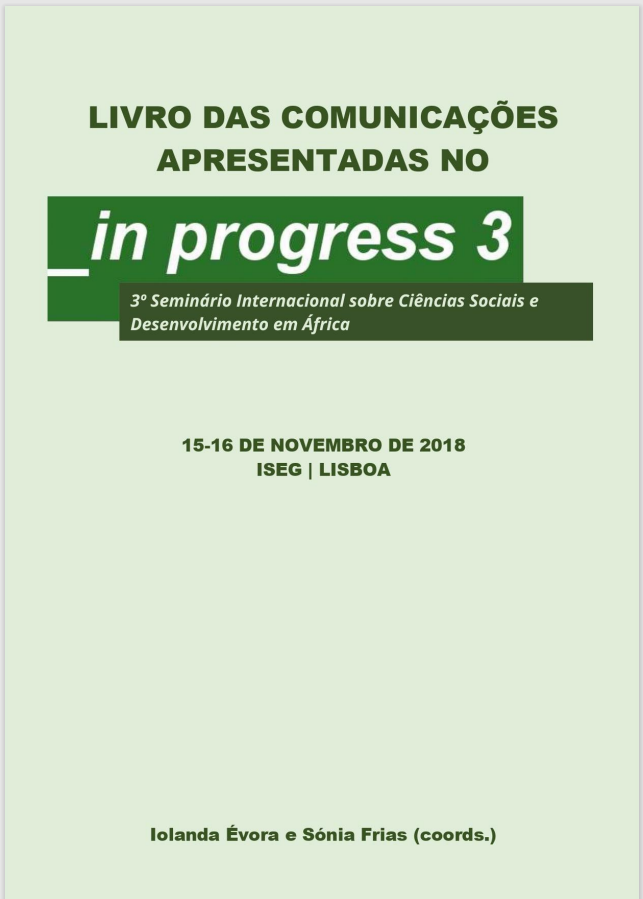
Book of Papers Presented at the In Progress 3 Seminar
Abstract:
This third edition of In Progress, Seminar on Social Sciences and Development in Africa brings together works by researchers and postgraduate students whose study and research theme is contemporary Africa and its development, supported by scientific currents that stimulate new approaches beyond the “development”, exploring the notions of “well-being” or “good living” and remaining close to currents of thought and debates between Africa, Asia and Latin America. The texts include themes such as: fieldwork: practical, theoretical and methodological issues; politics, civil society dynamics, development; culture, thought and change; strategies for cooperation and development; and populations, mobility and well-being. The second part of this work contains the reflections of the speakers invited to the In Progress 3 seminar, which include both a critical perspective on the dominant discourses and methodologies in the field of development policies linked to mobilities, economy and identities, as well as the contribution of financial growth for economic growth and several of the issues to be taken into account in discussions on economic sustainability, taking the example of SADC member countries. The final conference refers to the times and questions that are important to retain and what is important to reflect on in the context of social and human sciences, in particular, when the debate is about the (neo)colonial perspective and contemporary global challenges for African Studies.
Cite this e-book:
Évora, Iolanda e Sónia Frias (coord). 2024. Livro das Comunicações Apresentadas no In Progress 3 com Revisão por Pares : 15 a 16 de Novembro de 2018 no ISEG/ULisboa. Lisboa: ISEG – CEsA
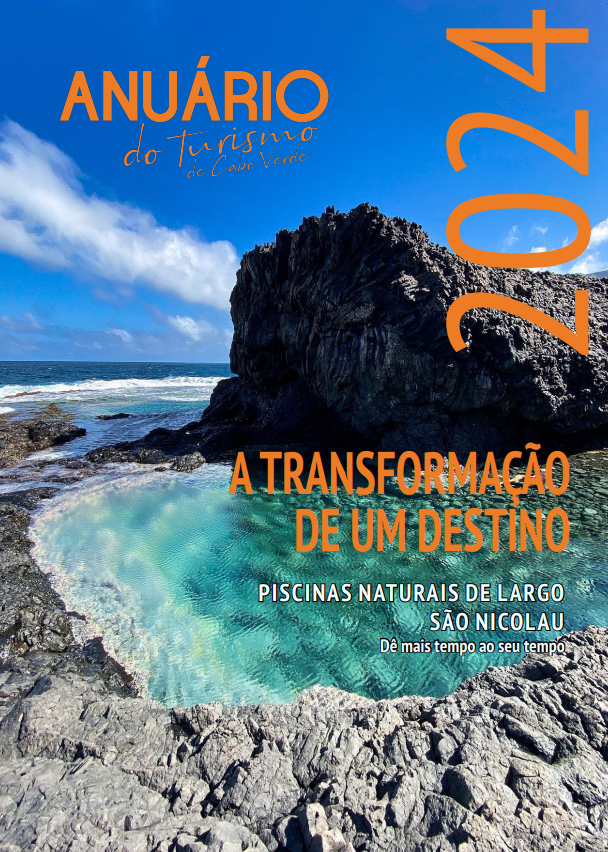
Turismo Costeiro e Marítimo em Cabo Verde. Rumo a um destino sustentável
Cite this paper:
Sarmento, E. (2024). Turismo costeiro e marítimo em Cabo Verde. Rumo a um destino sustentável. In Morgado, Carlos (2024). Anuário do Turismo de Cabo Verde 2024: a transformação de um destino (pp.30-32). Praia, Cabo Verde.
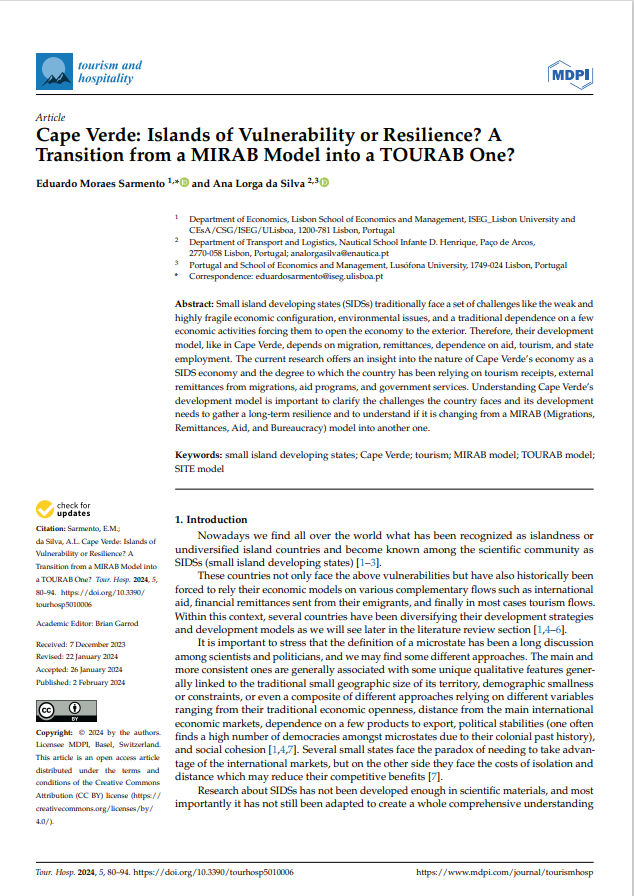
Cape Verde: Islands of vulnerability or resilience? A transition from a MIRAB Model into a TOURAB one?
Abstract:
Small island developing states (SIDSs) traditionally face a set of challenges like the weak and highly fragile economic configuration, environmental issues, and a traditional dependence on a few economic activities forcing them to open the economy to the exterior. Therefore, their development model, like in Cape Verde, depends on migration, remittances, dependence on aid, tourism, and state employment. The current research offers an insight into the nature of Cape Verde’s economy as a SIDS economy and the degree to which the country has been relying on tourism receipts, external remittances from migrations, aid programs, and government services. Understanding Cape Verde’s development model is important to clarify the challenges the country faces and its development needs to gather a long-term resilience and to understand if it is changing from a MIRAB (Migrations, Remittances, Aid, and Bureaucracy) model into another one.
Cite this article:
Sarmento, E.; Silva, Ana (2024). Cape Verde: Islands of Vulnerability or Resilience? A Transition from a MIRAB Model into a TOURAB One? Tour. Hosp. 2024, 5(1), 80-94; https://doi.org/10.3390/tourhosp5010006. MDPI. Special Edition Submit to Special Issue: Small Island Developing Countries (SIDS): Tourism between Innovation and Authenticity for Better Sustainable Developing Paths
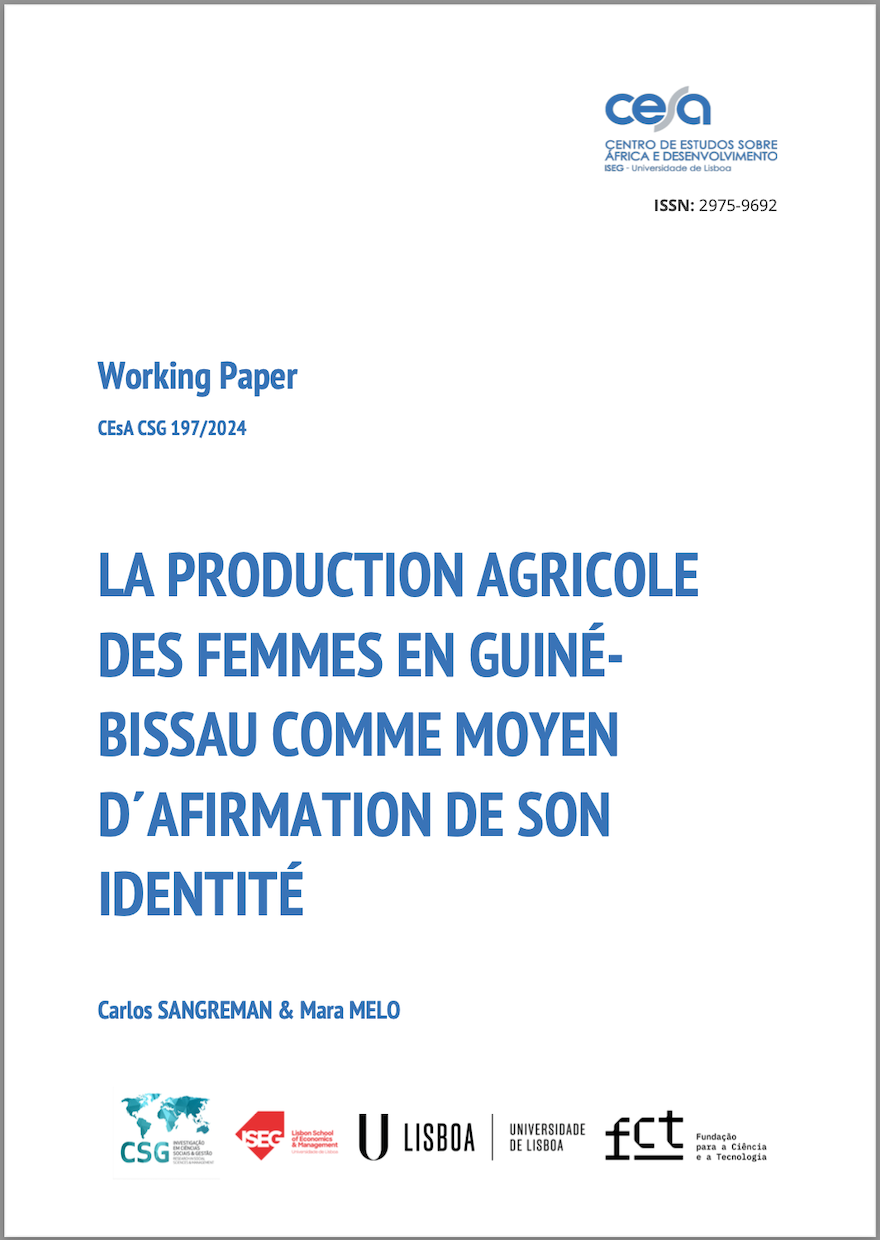
Working Paper 197/2024: La Production Agricole des Femmes en Guiné-Bissau comme Moyen d´Afirmation de son Identité
Abstract:
This working paper is an intermediate product of the study done for Swiss Cooperation in Guinea-Bissau, written in French without any point in Portuguese. What we demonstrate, as well as the principles of restitution and appropriation by the persons or institutions that access to respond to surveys or interviews, are words that do not translate into concrete actions for this Cooperation. The data were obtained by surveys and interviews in the regions of Bissau, Biombo, Bafatá, and Oio, with the producers (which also include a limited number of male producers) of leguminous agricultural products, in a sample of 160 people chosen at random. At the option of the promoter, the study focused on the marketing of products and not on production. To better understand the results, it must be said that this business model is not very profitable, but it is an activity that gives a greater independence of women in relation to men in the family space, since decisions about the use of profits belong to the producers. It also has a potential environment of action for the affirmation of the social (and not just family) identity of women that should not be despised although, as far as we can see, this is expressed for now only in the organization of associations of producers.
Cite this Working Paper:
Sangreman, C. e Melo, M. (2024). “La Production Agricole Des Femmes En Guiné-Bissau Comme Moyen D´Afirmation De Son Identité”. Instituto Superior de Economia e Gestão – CEsA/CGS – Documentos de trabalho nº 197/2024
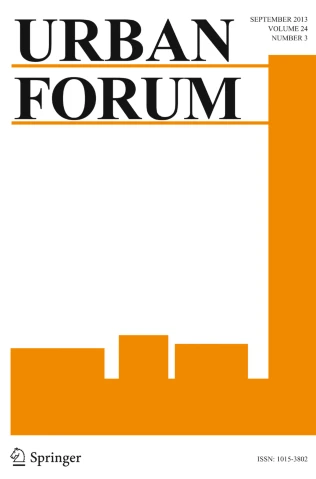
Armed Conflict and Urbanization in Cabo Delgado, Mozambique: A methodology for a critical inquiry
Abstract:
Mainstream urban theory fails to encompass urbanization in Africa. Among its many drivers, armed conflicts displace rural populations to cities, accelerating urban processes and impacting sustainability and governance — the phenomenon of conflict-induced urbanization. In the province of Cabo Delgado, a violent insurgency has been displacing thousands of civilians since 2017; many of whom have fled to the provincial capital Pemba, doubling its population in just 5 years. This article presents the theoretical framework and methodological design for an inquiry located within a contemporary critique of mainstream urban studies; the goal is to analyse conflict-induced urbanization in Pemba with a comparative case study, using participatory visual methods, for which a pilot study took place in September 2022. With this, the author aims to contribute to engaged urban studies in Mozambique and Portugal and to transform the trauma of war into opportunities for sustainable development and prosperity.
Cite this article:
Agostinho do Amaral, S. Armed Conflict and Urbanization in Cabo Delgado, Mozambique: A Methodology for a Critical Inquiry. Urban Forum (2023). https://doi.org/10.1007/s12132-023-09505-y
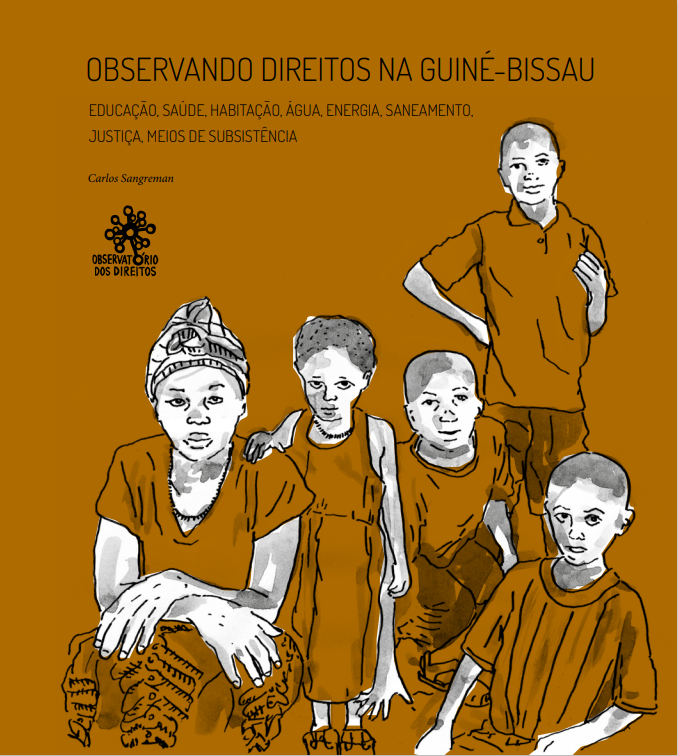
Observando Direitos na Guiné-Bissau: Educação, saúde, habitação, água, energia, saneamento, justiça, meios de subsistência
Quotation:
Sangreman, C. (2017). Observando Direitos na Guiné-Bissau – educação, saúde, habitação, água, energia, saneamento, justiça, meios de subsistência. Lisboa: ACEP, com LGDH e CEsA. ISBN 978-989-8625-16-8

Observando Direitos na Guiné-Bissau: Educação, saúde, habitação, água, energia, saneamento, justiça, meios de subsistência
Quotation:
Sangreman, C. (2016). Observando Direitos na Guiné-Bissau – educação, saúde, habitação, água, energia, saneamento, justiça, meios de subsistência. Lisboa: ACEP, com LGDH e CEsA. ISBN 978-989-8625-14-4
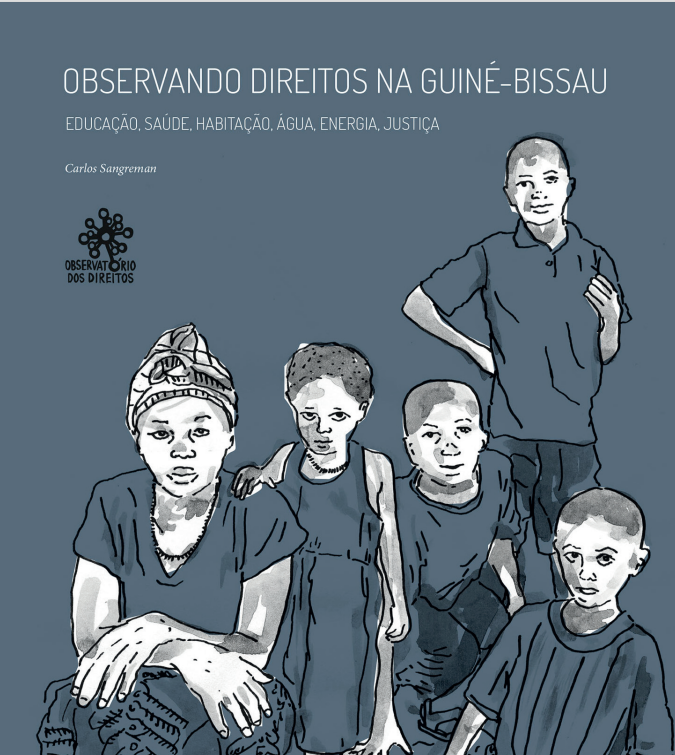
Observando Direitos na Guiné-Bissau: Educação, saúde, habitação, água, energia, justiça
Quotation:
Sangreman, C. (2015). Observando Direitos na Guiné-Bissau – educação, saúde, habitação, água, energia, justiça. Lisboa: ACEP, com LGDH e CEsA. ISBN 978-989-8625-07-6.
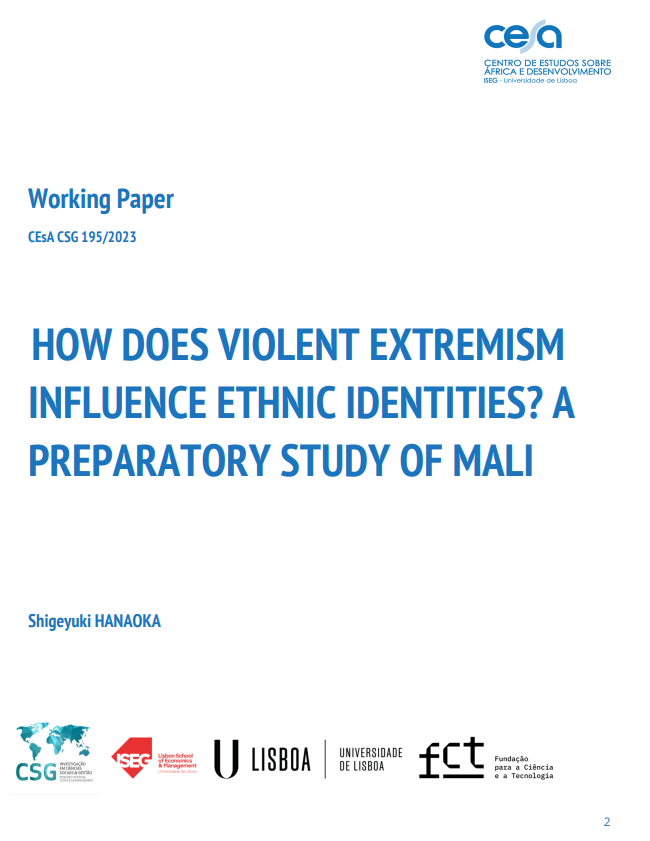
Working Paper 195/2023: How Does Violent Extremism Influence Ethnic Identities? A Preparatory Study Of Mali
Abstract:
How does violent extremism (VE) impact individuals’ ethnic identities? While there is a broad body of research on VE, which has seen significant growth in Africa in recent years, including assessments of its origins, the coalescence of various movements, and military operations against VE, research on its impact on ethnic identity and its associated political behaviours remains limited. This work serves as a preparatory study to examine how people’s perceptions, and political behaviours related to ethnic identity have evolved during the period of VE’s substantial expansion in Mali in recent years.
Quotation:
Hanaoka, Shigeyuki (2023). “How Does Violent Extremism Influence Ethnic Identities? A Preparatory Study Of Mali”. CEsA/CGS – Documentos de trabalho nº 195/2023
